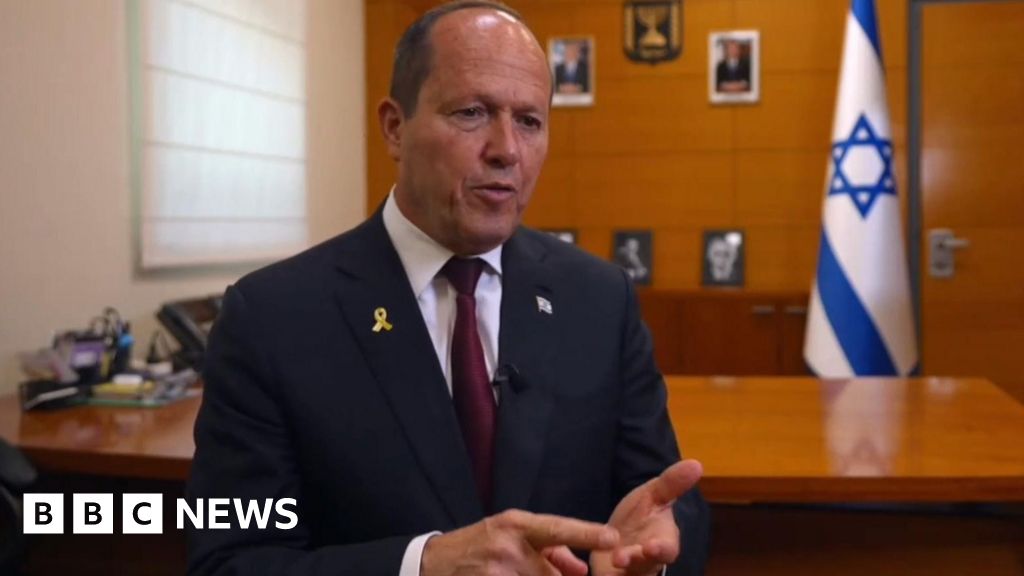AFTER HOME GAMES for the first five seasons of Jessie Bates III’s career, the former Cincinnati Bengals safety had to leave the stadium to find his family.
Now in Atlanta, Bates meets his family in a suite in the Mercedes-Benz Dome after home games, where there is food and a place “our families can be able to connect on a different level.”
“I think that’s what separates us compared to a lot of other organizations,” Bates said.
It’s the kind of subtle distinction that can matter a lot to NFL players.
In February, when the NFL Players Association released their annual report cards, the Bengals received the lowest score — an F-minus — in the “treatment of families” category. The Falcons received an A, the second-highest grade.
The report cards are based on a survey of 1,695 players across the league, administered from August 26 to November 20, 2024 and includes grades on everything from head coach to team travel and the locker room. According to the NFLPA, answers were collected anonymously.
ESPN spoke with players about how they define “treatment of families” and the feedback that serves as the basis for the NFLPA’s grades.
Multiple current Bengals players, who were granted anonymity to speak freely on the subject, referenced the lack of gameday amenities available to them and how difficult that can make it on their families.
One player noted that another AFC team had an indoor cookout-style meeting area in the stadium postgame. Up until last year, when the Bengals added a postgame area inside the stadium for families to meet, the they had an outdoor area beneath a large white tent roughly 20 yards away from the players’ parking lot.
One player described the tent as a “s–t show,” especially when it was cold.
Another veteran pointed out that one of the major issues for his team on gameday is the lack of a dedicated area for families in terms of bathrooms and concessions. Many times, families are constantly waiting in long lines for both of those things, which for players with young children — and a game played by young men means a significant number of NFL players who are fathers have young children — brings stress and security concerns.
“Just different things where they can make it more convenient for our families, especially when the husband’s not there,” the veteran said to ESPN. “We’re worried about them. I think it would be easier for us if we had certain things for families, we don’t have to worry about it.”
And while the importance of the surveys varies from team to team, some teams, like the Minnesota Vikings, believe the NFLPA survey — and particularly the assessments of how the team treats families — has been key to the back-to-back monster free agent classes they signed in 2024 and 2025.
Falcons offensive lineman Chris Lindstrom, who is an NFLPA player rep, said before the report cards were done — the first was published in 2023 — when players were going through the free agency process, they had to try to call around to other players they knew to get a feel for the pros and cons of each franchise.
“The survey has had a major impact,” 2025 Vikings free agent signing Ryan Kelly said. “Because you’re a guy looking for a new home, you’ve got kids, you have a family. It’s like, ‘what’s the treatment like?’ If you treat my family well, I’m going to be happier as a person, I’m going to be happier as a player, I’m going to be in a better mood, and we’ll probably have more success.”
Kelly spent his first nine seasons with the Colts, a team that was middle-of-the-pack with a B-minus ranking for treatment of families in the most recent survey.
And although it is early in his Vikings career, it didn’t take Kelly long to feel like the survey results he had seen were accurate.
“Being only there for a little over 24 hours [to sign his FA contract], we felt that as my entire family was there,” Kelly said. “It didn’t matter if it was my mom or my dad or my kids or a nanny, everybody felt the love and that goes to show you it’s a special place.”
IN THE MIDDLE of a busy season, Vikings running back Aaron Jones appreciates that the team’s support staff can and will handle certain needs for a player’s family.
On Tuesday or Wednesday of each week, Vikings support staff will ask players if they have family traveling to the game. If they do, staff will ask how many tickets they need and whether the family requires hotel accommodations. Players can choose to pay directly or have the cost deducted from their paychecks.
“It just makes it that much easier,” Jones said. “Your family’s not, ‘Hey, I’m trying to find a place to stay. Where are you guys staying? What’s the closest hotel?’ It just takes all of that away.”
The Vikings support staff will handle everything to make “sure your family’s taken care of,” Jones said, “from directing the families into the game to helping them get seated to sideline passes.”
“It is no stress, just because I know they’re in good hands,” Jones said.
The opposite is true for the Jacksonville Jaguars, according to a veteran Jaguars player who asked for anonymity. Jacksonville scored an F for treatment of families on the report card, which was the second-lowest grade.
“I know we’re supposed to be the ones to tell our family certain things, but when there’s 30 other things that us as players have to worry about and then we tell our family [information] at the last minute, things can get miscommunicated in the information,” the player said. “When we have to [be the person] to give them the tickets or [be the person] to give them all these things, [stuff] happens, you know what I mean?
The player continued: “I want to make sure that my family is OK so I don’t have to worry about them. [Sometimes] these security guards ain’t letting my damn wife in. I’ve got to worry about that or we’ve got to call [a team rep] to handle this. It shouldn’t [happen]. Family should be already taken care of. They should be an extension of a player in certain areas.”
ON GAME DAY, Jones knows his kids — he has a one-and-a-half-year-old and a five-year-old — will be having fun. The running back said while his oldest is very into the game, the Vikings do such a good job at their daycare during halftime — with everything from face painting to a petting zoo and other activities to keep the kids engaged — that “he doesn’t want to come back [for the second half].”
The Bengals do not have child care available during games, one of three teams that does not provide that option, according to the NFLPA survey.
“It’s hard for kids to get through a full game,” a Bengals player told ESPN. “Obviously, your family wants to come support. My [kids] are old enough to where they think it’s cool but it’s also like a lot. I think that [child care] could be awesome.”
According to multiple players, plans are in place for Cincinnati to implement child care for 2025 home games, which could improve their ranking. But one player noted that it took three consecutive years of failing grades on the NFLPA survey for the Bengals to potentially add the service.
What’s more perplexing is that the Bengals are one of the most prominent family-run organizations in professional sports, with three generations of the Brown family operating the franchise founded by Paul Brown, the father of current team president Mike Brown.
Despite this, one player indicated to ESPN that the team does a poor job of integrating families into not just the gameday experience but other times throughout the regular season.
“Isn’t it great that your daughters and your granddaughters are at work with you?” one player told ESPN. “And then we have to go in the parking lot to see our family in the rain? Yeah, it sucks.”
Brown’s daughter and Bengals executive vice president Katie Blackburn addressed the survey at the NFL’s league meeting in the spring saying, “We are always happy to talk to players about issues they might have. I focus more on feedback from our players, [coach] Zac [Taylor]. F-minus is a little harsh. It doesn’t really offend me. If there’s something they want us to look at, we can take that message and build on it and take a look and see if there are things that we might be able to do to make people feel better. We’re certainly open to that.”
The Dallas Cowboys provide child care on game days, but the fun starts before that. The day before a Sunday game at AT&T Stadium, the Cowboys host players’ families for lunch, bringing in things like ice cream trucks and coffee trucks. The Cowboys call it FIT, or family ice cream time, which allows “time for our significant others to be up here around each other,” Cowboys right tackle Terence Steele said.
“That means a lot,” Steele said.
Falcons team president Greg Beadles said Atlanta has monthly family dinners at the facility and hosted a Halloween trick-or-treat last year for players’ kids.
While the Jaguars received a poor grade based on the 2024 surveys — Jaguars players voiced in the report cards that they want a family room available during games “so their families can escape the heat and allow mothers to change/nurse babies” — new head coach Liam Coen, who has two young sons, made family involvement a priority during the spring.
“He’s done a hell of a job on doing a lot more family stuff, especially this early on,” the player said. “I know he speaks about how he was raised in the locker room in the facilities, and I want my kids to do the same thing. And so now even during OTAs, every Thursday he’s doing family day. Our families can come and watch our practice and we can hang out with our family for lunch and stuff, too. So he’s having a lot more family-orientated things, which is awesome.”
AFTER HOME GAMES, Cowboys special teams ace C.J. Goodwin, the second-longest tenured Cowboy, knows where his family will be: the Landry Room. Named after the Cowboys Hall of Fame coach, it’s a private club area inside AT&T Stadium. Each player gets two free tickets to the area, which includes food, drinks and “anything you want.”
Cowboys players rated the post-game family area 9.05 out of 10, ranking them second out of 32 teams.
A veteran Jaguars player, who asked for anonymity, said he would like a dedicated, secure inside area for families to meet up after the game. Last year, for example, the space was a tent outside the players’ entrance to the EverBank Stadium locker room.
The Cleveland Browns do not have a post-game spot to gather inside the stadium after home games. The Browns received a D-plus in treatment of families, the fifth-worst grade in that category.
The report cards noted that the Browns players surveyed “believe that the coaches’ families are treated better than players’ families,” as “the coaches’ families have a post-game meet up inside the stadium, while the players’ families meet in a tent in the parking lot.” According to the team, the tent is heated and the organization spends around $200,000 on the space.
Browns left guard Joel Bitonio, the longest tenured member of the Browns, said he does think “there has been improvements as far as families go.”
“I think it’s almost like a logistical thing in our stadium,” Bitonio said about the downtown lakefront stadium that opened in 1999. “There’s teams like the Raiders, the Vikings, the Cowboys, they will have dedicated areas where after the game, you can meet up with your family, your friends. They have meals for them inside the stadium, where we’re kind of across the street in the parking lot.
“It gets cold in Cleveland and there’s a little tent there where you can meet up with them for five minutes. But it’s kind of a thrown-together segment. I think the players just wanted something [with] a little more space and a little more time.”
The Browns say that they have been eliciting feedback from players on ideas for a family room as they move forward with their plans to build a $2.4 billion domed stadium in Brookpark, a Cleveland suburb.
SPEAKING WHILE WATCHING his team practice in Maui last week, Los Angeles Rams team president Kevin Demoff said holding minicamp in Hawaii — and inviting players to bring along their families or significant others — was not a reaction to the team’s poor NFLPA report card.
The Rams, who ranked 30th of 32nd teams in the treatment of families category last season, had already planned this trip when the report cards came out, Demoff said.
“There’s nothing we ever do that’s based on the NFLPA surveys,” Demoff said. “We always do what we think is best for our organization, our players and their families. I think if you wanted to make this a great trip for them, they had to be able to bring their families and have that opportunity open to them.
“I’ve loved getting to watch our football operations staff family interact with player families in ways that never really happened. The authentic collisions that happened in the hotel lobby and people going out to dinner or playing golf and doing those things, watching the families plant trees yesterday together in Wailea. Those are all special moments that bring the entire organization together. Doing it because you might do better in a survey would be a backwards result, I think, from what we’re all trying to achieve.”
But some teams are undoubtedly guided by the surveys. A Jaguars official said they listened to player concerns over the lack of access sideline passes so they can see their families pregame, and they have solutions in place for 2025. Pre-game sideline passes are now available, and players and their families will gather postgame in the cafeteria of the team’s football facility adjacent to EverBank Stadium.
“We value all our players and their families,” the official said.
Like others within the league, the veteran Jaguars player also talked about the importance of being able to rely on someone on staff to help with communication [such as ticket information], organizing family events, and making sure things run smoothly on game days for the families. That would take a load off the players’ minds and eliminate some distractions, he said.
The veteran player acknowledged some of the issues he mentioned are related to the current stadium, which is scheduled to undergo a $1.4 billion renovation over the next three seasons. The team will have to play its home games elsewhere in 2027 — likely Orlando — and that will present a challenge on game days for families, but Jaguars officials say areas for players/families on game days will be among the major upgrades from the current stadium when it reopens in 2028.
Bitonio said he thinks the report cards have “done a good job in Cleveland,” pointing to the new weight room the Haslam family put in.
While Demoff said he appreciates the feedback from players through the survey, he called the report cards “a little bit of a double-edged sword.” Along with serving as the Rams’ team president, Demoff oversees the operations of all Kroenke Sports and Entertainment teams, including the Denver Nuggets (NBA), Colorado Avalanche (NHL) and Colorado Rapids (MLS). Demoff said no other league’s players association currently produces similar report cards.
“I wish we knew the questions and the data, because we only see the grades,” Demoff said. “We don’t get a chance to see the questions that were asked. So we have to go replicate those questions — good or bad — to our players and find out, ‘Hey, what was the issue on this particular item?’
The NFLPA does not share how many players voted for each team.
“I do think it would be helpful if there was a more transparent sharing of the questions and of the data so that we didn’t have to go and guess as to ‘here’s what the issue might have been,'” Demoff said. “Not everything I think is as sensational as it’s made out. But I think if there’s really a goal to make it a true partnership, we’ll be able to share the data more.”
According to an NFLPA spokesperson, the NFL has instructed the players association not to discuss the report cards directly with individual teams.
“We recognize that context and background are essential to understanding the results of this project that serves to improve working environments for our player members,” an NFLPA spokesperson said. “We’re eager to engage in meaningful conversations with any club interested in discussing their feedback. However, the league has instructed us to refrain from initiating any direct conversations with individual clubs on this matter.
“If a club would like to speak with us directly, we encourage them to contact the league office to request permission. We would welcome the opportunity to have those conversations.”
Todd Archer, Ben Baby, Michael DiRocco, Daniel Oyefusi, Marc Raimondi and Kevin Seifert contributed to this story.
Source link
















